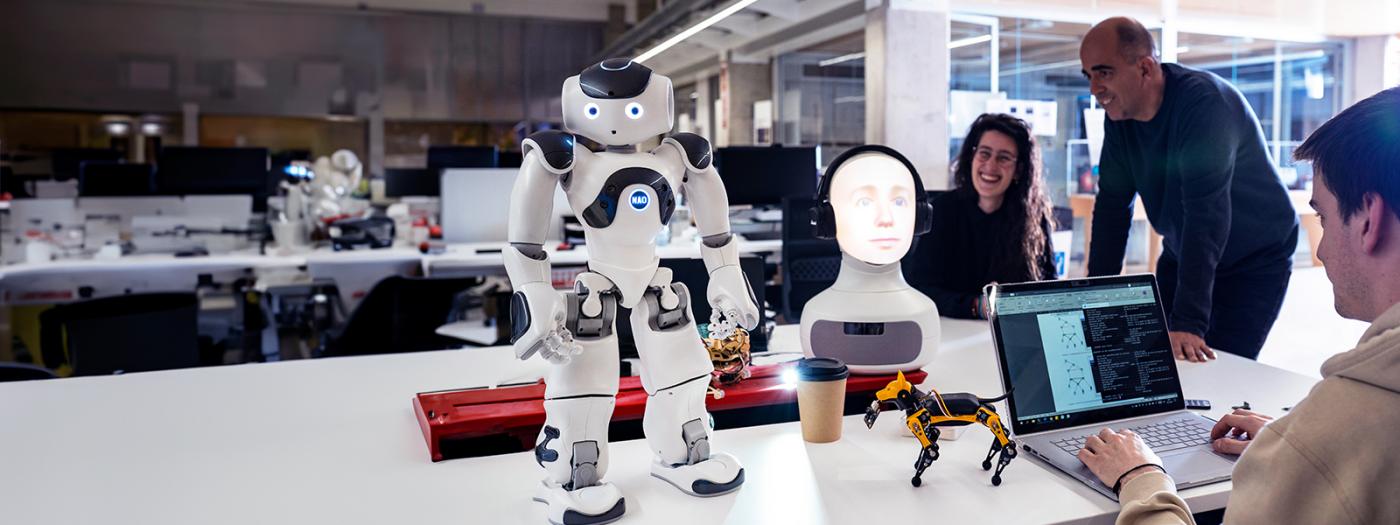The objective of the subject is to introduce students to today's robotics and the innovation processes that drive it forward. We will discover what is currently being done in the field of robotics in very diverse areas and from two perspectives: industrial/business and research/academic. This will allow students to learn not only about the technological challenges of the sector, but also about the innovation dynamics that drive new products, services and solutions in the real world.
Throughout the course we will also have guests from the business and academic world who will present both the projects they are working on and the innovative approaches they use. In this way, students will have the opportunity to establish a first contact with possible job opportunities and with the agents who are leading innovation in robotics today.
Titular Professors
It is highly recommended to have previously taken the following subjects:
Object-Oriented Design and Programming
Introduction to Robotics
Navigation Systems
Artificial Intelligence Applied to Robotics
Learning Outcomes of this subject are:
RA1. Broad view on the advances in different areas of robotics
RA2. Ability to research, synthetize and present work
RA3. Exposure to the working opportunities within the academic and industrial areas
RA4. Ability to understand basic concepts about business innovation, vision and business strategy.
Given the nature of the course, it is not organized based on fixed topics.
The methodology of the course is based on short research works (state-of-the-art) on the advances in robotics prepared by the students which will be presented in class through short oral presentations.
The course covers two types of presentations:
Internal: students investigate and present in class their own findings
External: invited speakers from the industrial and academic sector present current or recent past work within the robotics field
The evaluation is divided in a theoretical section (oral presentations) and a practice.
Presentations score = 50% presentation content + 50% oral presentation
Practice = 50% final product + 20% development + 30% PHASE 1 report
FINAL SCORE = 50% presentations + 50% practice
A minimum mark of 5.0 for each partial mark is required to pass the course. Each student will be evaluated individually
